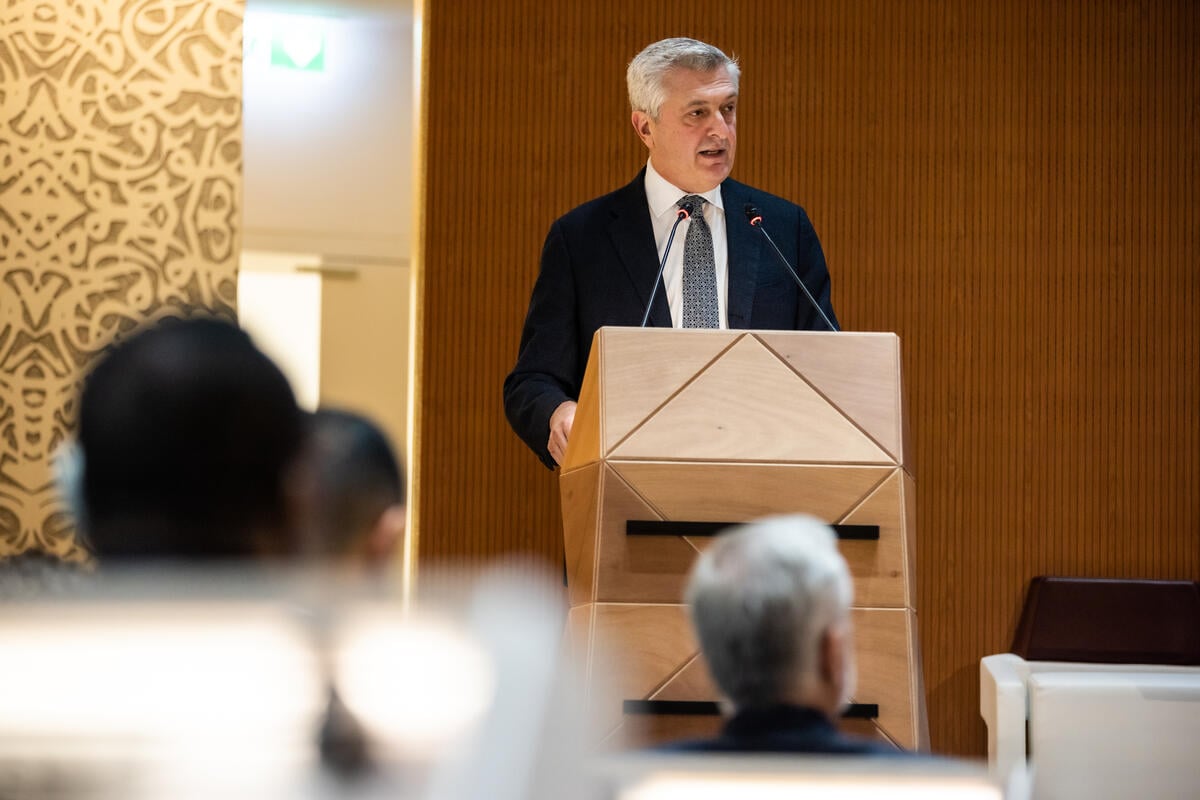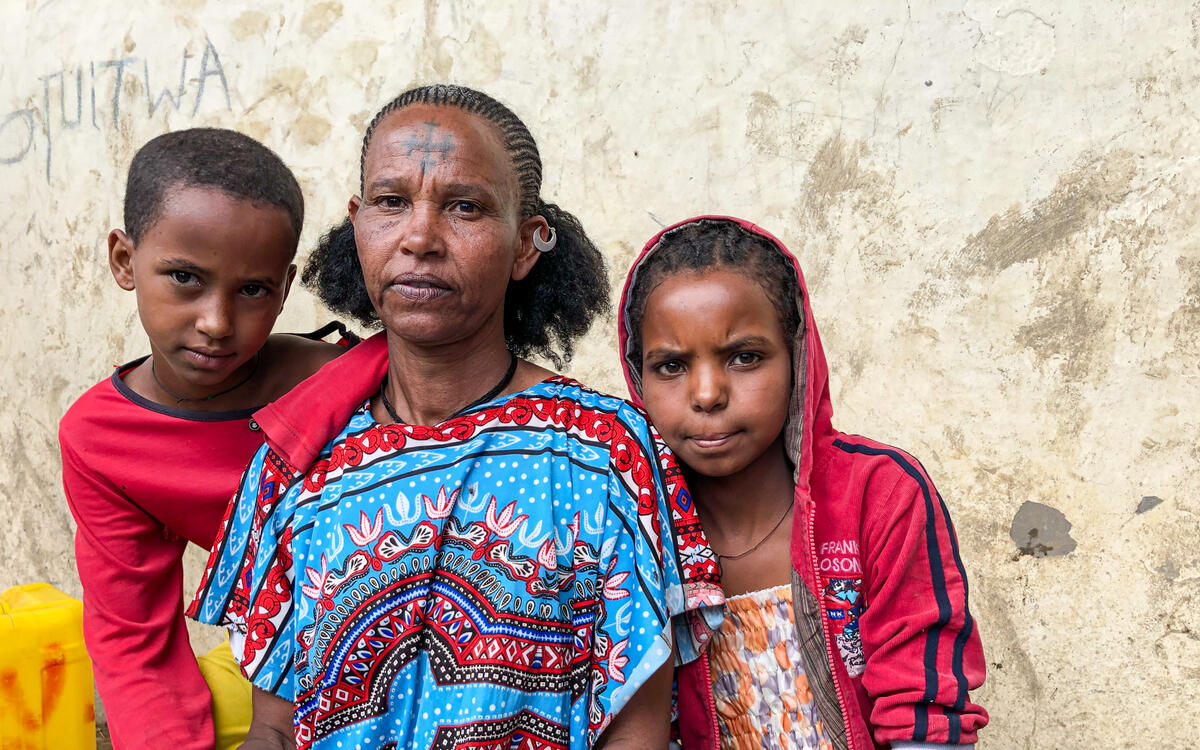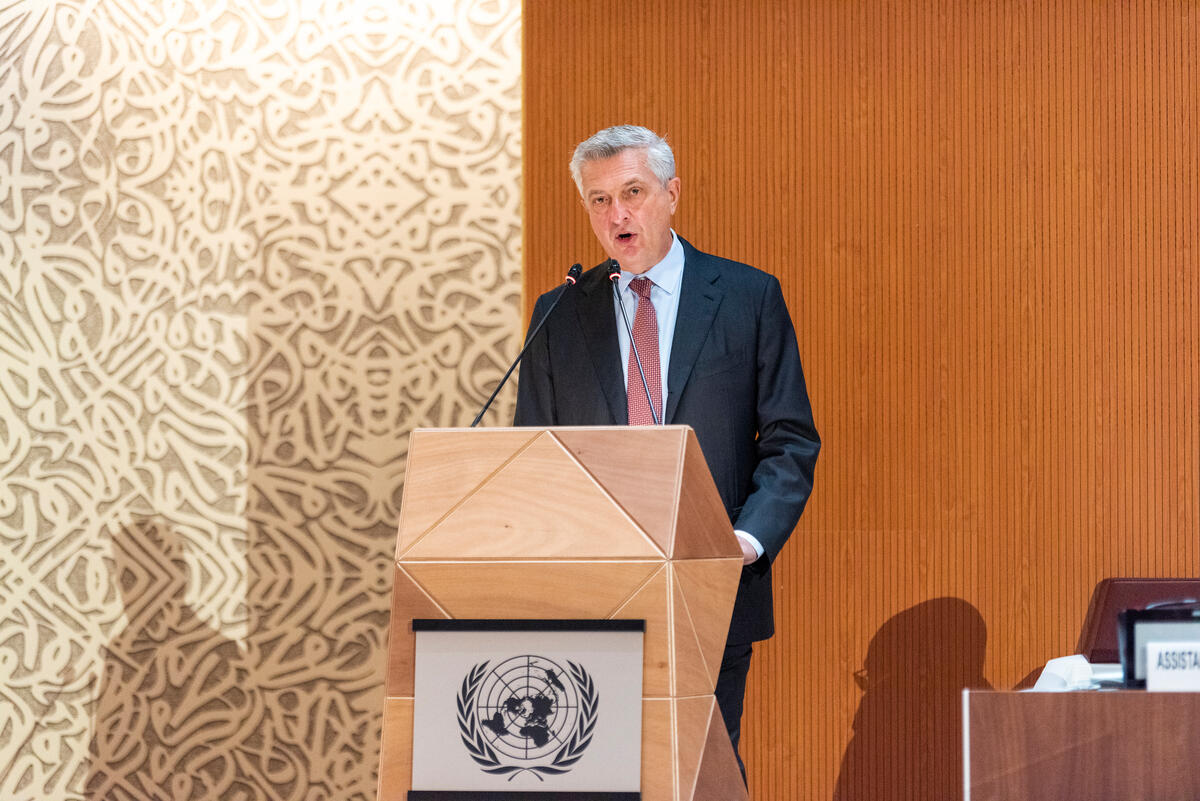Replace vilification with refugee protection, says Lubbers
Replace vilification with refugee protection, says Lubbers

GENEVA, Oct. 3 (UNHCR) - UN High Commissioner for Refugees Ruud Lubbers today called on his 64-country governing board to ensure the effective protection of refugees everywhere, appealing on countries to work to improve their asylum systems and to end the vilification of refugees.
In his closing address at the 54th annual session of the UN refugee agency's Executive Committee, Lubbers said that states "must guard against overly restrictive procedures and practices that are not consistent with international refugee law."
"All too often states - including members of this Executive Committee - fail to live up to their pledges to protect people fleeing persecution," Lubbers said, noting that he was deeply concerned about the trend among governments to shield their populations against foreigners.
"The reality is that there is far too much anti-foreigner sentiment," Lubbers said. "In many countries, refugees and asylum seekers are vilified by both politicians and the media almost as a matter of routine."
He told governments to work towards more efficient refugee protection, including addressing the issue of refugees and asylum seekers caught up in migratory movements in an effort to find safe asylum.
Lubbers likewise challenged donor states to better assist poor countries often over-burdened with large refugee populations, telling governments to show a "greater commitment to multilateralism."
Referring to "forgotten emergencies," Lubbers said, "we must continue to focus on finding solutions for those in protracted refugee situations." He said the resolution of these prolonged caseloads would remain elusive unless their root causes are not addressed.
The refugee agency still faces a significant funding gap in its 2003 budget. Lubbers said his office still needs $54 million to cover its annual programme that covers continuing needs among long-time refugee populations, and not high profile programmes like Iraq.
Several states and agencies have provided unprecedented levels of recent support, with the United States contributing a record $307 million, making it UNHCR's single largest donor, while the European Union states and the European Commission have so far provided $314 million.
He acknowledged support from these donors and the strong funding UNHCR continues to receive from Japan, the Nordic states and Canada, but noted that his office was depending on only a few donors for the bulk of its budget.
"Our challenge now is to find ways of continuing to expand our donor base and to ensure that other donors also increase their contributions."
"We see a positive trend, slow but sure," Lubbers said. "Eighty percent of our funding from eight donors, it is a bit too limited of a base, not what you would exactly call multilateral."
The refugee agency chief praised the Russian Federation and Kuwait, which have each contributed more than $2 million, and announced that Botswana had joined the ranks of UNHCR's donor states.
Before closing this year's session of his agency's governing body, Lubbers thanked departing Deputy High Commissioner Mary Ann Wyrsch for her "enormous contribution" to the agency since joining UNHCR three years ago.









